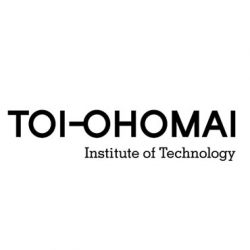
Satellite Programmes: Barriers and enablers for student success
Status
Completed: 11 May 2016
Project Details
A project, undertaken by Bay of Plenty Polytechnic (BoPP) and completed in 2016, to examine the development and implementation of BoPP’s Health Care Assistance (HCA) programmes delivered at satellite programmes across the central North Island.
Aims:
The aims of the project were to:
- examine the experiences of students in the HCA satellite programme, given the consistently high levels of completion and satisfaction with the programme
- identify the challenges that satellite programmes and their students face and strategies for responding to these challenges
- understand and collate potential enablers and barriers to student success along with the pedagogical elements that assisted or hindered student success in these programmes
- capture stories of change for the students and their whānau and community
- provide a set of guidelines which may be used to assist the development of further satellite programmes that can be used to other ITPs and PTEs.
Methodology:
A mixed-method approach, both quantitative research and qualitative methodology, was undertaken including:
- a literature review
- information from institutional records including student completion rates, programme evaluations and historical and current statistical data
- focus groups comprising students, stakeholders and tutors
- individual Skype/telephone interviews with participants who were not present at the focus group meetings.
The research questions posed were:
- What are the challenges faced by students enrolled in satellite programmes and how do they overcome these challenges?
- What enables students to succeed despite the challenges they face?
Team

Rachael Gardiner
Project Leader
Bay of Plenty Polytechnic (now Toi Ohomai Institute of Technology)
Heather Watt
Bay of Plenty PolytechnicStatus
Funding
$18,840.00 (excl GST)
Key Findings
The key findings of the project included:
- Satellite students face additional barriers and challenges on their way to success and completion related to accessibility, affordability and accountability.
- The key enablers for satellite programmes identified through the study were motivation, relationships and cultural recognition, and the way in which the satellite programmes built and sustained these.
- For most students, the biggest challenges were to do with either their home life, or work commitments. The cost of the course and the loss of income was significant, but had been considered well before enrolment, and was not seen by most as a barrier to study.
- For providers, a central point of note is the importance of the ‘fit’ of the teaching staff with the students and community as the face of the organisation. Students were very clear that their rapport and relationship with tutors was a paramount reason for their growth in confidence, and ultimate success.
- While satellite programme delivery will always be highly context and provider specific, four other considerations for BoPP, as well as other tertiary providers, arising from the project included the role of specialist liaison staff, the importance of partnering with community and other organisations, use of external contractors to provide pastoral support, and student access to technology.
Key Recommendations
The project raised the following recommendations for consideration:
Appoint a specialist liaison person | Consider appointing a specialist liaison person to oversee all satellite programme delivery, to coordinate scoping, planning and implementation activities, and as a key contact for stakeholders and staff. This would free teaching staff from some administrative functions and allow more class and student contact and better student access to teaching staff.
Foster relationships with stakeholders | Continue to foster relationships with community stakeholder and partner organisations beyond the lifespan of the original programme, to consider alternative programmes for the future and to promote a continuity of presence in the town and region.
Provide pastoral care and out-of-class support | Investigate contracting local people and/or organisations to provide pastoral care and out-of-class support for students. This again frees up tutor time, but also means that the students have a contact person ‘on the ground’ outside the two days a week of scheduled classes.
Supply computing equipment | In areas where there is no suitable ‘technology hub’, such as local libraries, the provider should consider supplying computing equipment, or assisting students to purchase this at a subsidised rate and have longer term plans in place for plans for installation, maintenance and replacement.
A research report prepared by Heather Watt and Rachel Gardiner.
(PDF, 2.54 MB, 34-pages).
- 13 May 2016